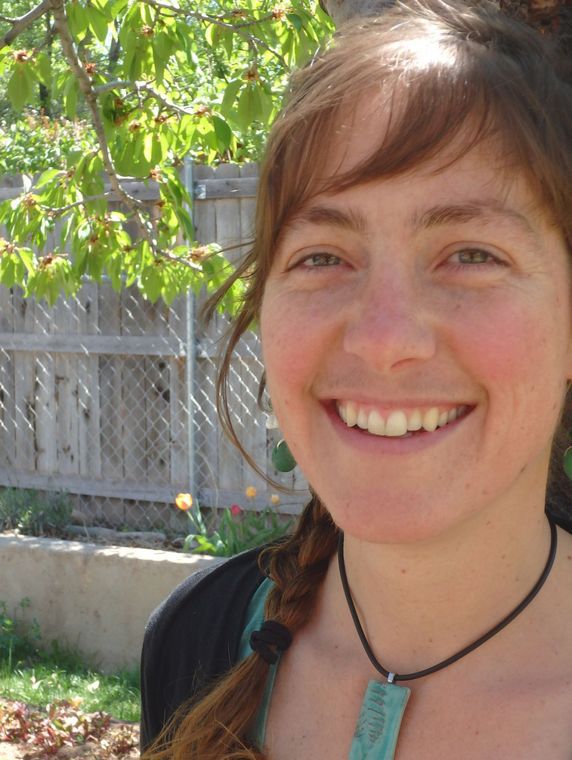As I recently looked out at the nearly complete tar sands processing facility at the PR Spring strip mine, I felt a heavy weight, a pressure bearing down on my usually buoyant sense of possibility. Why does public money flow so easily into these completely senseless corporate projects?
How can we begin to create a just transition away from fossil fuels, away from an economy that justifies poisoning water for money?
This year, because of a decline in oil prices, work on these tar sands and oil shale start-up operations is slow. A handful of workers and a security guard slowly piddle away, finishing an $80 million processing plant in what used to be the remote Roan Cliffs where they’ll wash tar from the earth and leave wet piles of chemical-rich mud sitting in unlined mounds at the top of the Colorado River watershed.
State regulators – the Utah Department of Oil, Gas and Mining; SITLA board members; the governor – don’t seem to mind. They’ve swallowed the industry lies about jobs. But good jobs don’t just vanish because of a slump in the world’s volatile commodity market. Good jobs are rooted in the community, are steady and are something you can be proud of.
The Moab Uranium Mill Tailings Remedial Action (UMTRA) Project recently laid off 31 workers with good jobs because of a $3.8 million budget cut, while Utah legislators threw $53 million of sales-tax money at a far-off highly controversial coal export terminal in Oakland, California.
The Colorado Plateau already has a toxic legacy of mining that we need to deal with. Peabody mined coal on Black Mesa for over 40 years, depleting the springs and groundwater that the Diné and Hopi rely on for survival, only to claim bankruptcy to absolve themselves of all responsibility. There are hundreds of contaminated sites and wells from uranium mining on this plateau, mostly near native communities. The White Mesa Mill, right next to the small Ute Mountain Ute Community, is the last uranium mill in the United States to process ore. Liners built to protect underlying aquifers from radioactive contamination have degraded, putting the community at risk of consuming poisoned water.
What we need is to stop digging this hole deeper. What we need is to start putting our public (and corporate) money into remediation, cleanup, watershed regeneration and locally driven alternative energy projects like rooftop solar.
Here is a breakdown: $80 million in investor money in U.S. Oil Sands processing plant; $86.5 million in public money spent on the Seep Ridge Road leading to the PR Spring Mine; $157 million on the proposed tar sands Book Cliffs Highway in Grand County; $53 million in taxpayer money on the Coal Export Terminal; $105 million needed for White Mesa Mill cleanup; $5 million needed to restore the 31 jobs lost at UMTRA.
What are our priorities? How do we exert control in this matter? There is no path for public engagement in this right now. This is why we must be creative, we must reinvent and demand a new public process that values the voices of those living in these sacrifice zones. If we want to survive here on the Colorado Plateau, state and federal regulators must account for climate change and the long-term costs to our communities of toxic energy production. Remediation means jobs. There is enough money in the world to address climate change and clean up the toxic messes; we just need to restructure the way that this money flows.
How do we do that? We need to build power as a strong and unified grassroots community. We practice exercising our strength and organizing just like the Civil Rights Movement, the Labor Movement, the Feminist Movement and so many more.
This June 17 through June 19, the Tavaputs Action Council will host a reclamation event at the PR Spring Mine.
We’re practicing transition by directly challenging the laws that protect the fossil fuel industry and the destruction of life-giving ecosystems. We will use permaculture techniques, native grass revegetation, healing herbs, art, performance and the written word to challenge business as usual.
Join us on this summer solstice as we begin to heal the land and ourselves, and reimagine a world where people have the power to do what is right.
This is a lifelong fight – be part of it.
Sarah Stock grew up in Castle Valley and lives in Moab, where she organizes with the local, all-volunteer climate justice group Canyon Country Rising Tide. When she’s not working or floating the river, she spends her time trying to build regional resistance to the fossil fuel empire.





